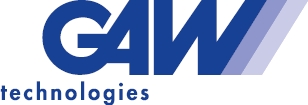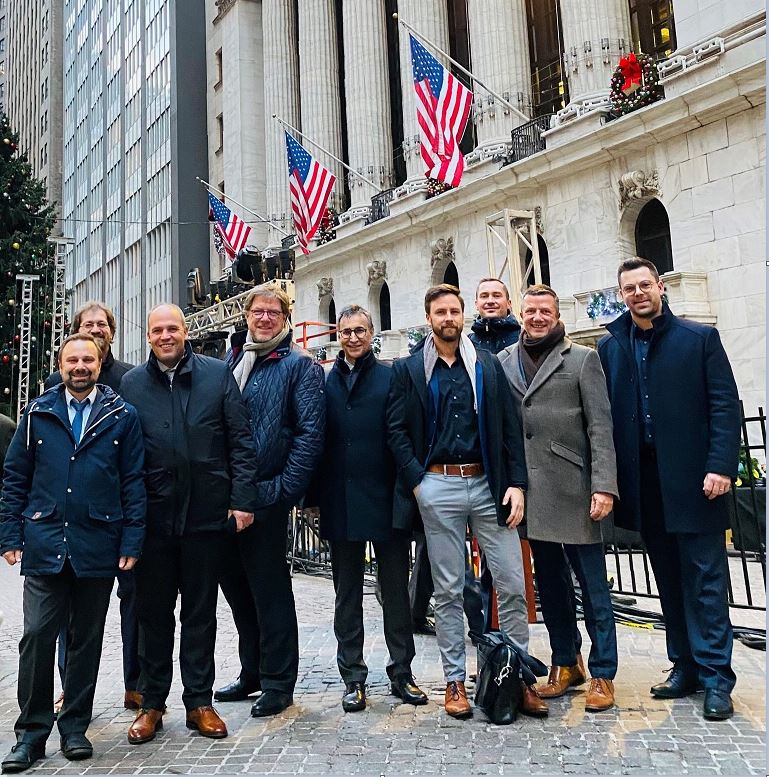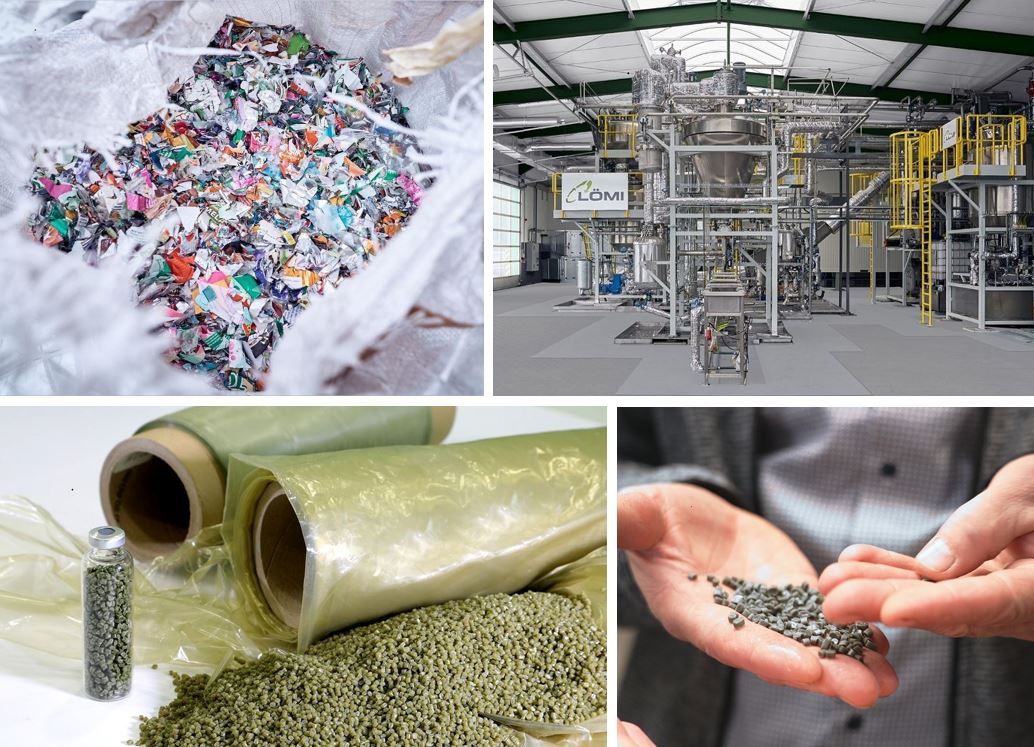GAW receives international award for the solution to a multi-layered problem
Together with Fraunhofer IVV, CreaCycle and industrial partners, companies of the GAW Group close the cycle for heterogeneous plastic waste (e.g. multi-layer packaging films) and take second place at the Alliance to End Plastic Waste awards ceremony in New York.
The occasion. At the beginning of December 2022, the Austrian Council of Ministers adopted the national circular economy strategy. By 2050, the Austrian economy and society should be transformed into a sustainable circular economy. Specifically, the strategy aims to reduce resource consumption to seven tons per capita and year by 2050. The GAW Group welcomes this important step, especially since our plastics division is intensively dedicated to closing the cycle for mixed plastic waste. In a European comparison, Austria has a high resource consumption (in 2018 was 19 tons per capita, 36 percent above the EU average). A large part relates to the area of plastics.
The partnership. In decades of cooperation with the Fraunhofer Institute for Process Engineering and Packaging (IVV), CreaCycle and well-known industrial partners, LÖMI and GAW technologies, two companies of the GAW Group, have succeeded in bringing a solution to the market that closes the cycle for heterogeneous plastic waste, for example food packaging films.
The problem - the Yellow Bag is on fire. In Europe, around 20 million tons of mixed plastic waste are landfilled or incinerated every year and thus withdrawn from the plastic cycle. So far, this has mainly been due to the fact that material composites made of plastics cannot be separated into their individual components and are therefore considered non-recyclable. With thermal recycling, however, true high-tech products with multi-layer film composites also end up in smoke.
The solution – the CreaSolv® process. The solution pushed by our project team enables the recycling of high-quality, single-variety plastics from previously unusable waste fractions.
Alexander Rinderhofer / Management of GAW Beteiligungs GmbH (GAW Group) and mastermind of the project team: “The idea of solution-based recycling is not new, but it is only now that the right framework conditions are in place to establish itself. The elegance of the process lies in the fact that it depicts sorting, cleaning and processing in one process and is therefore particularly suitable for those heterogeneous plastic wastes that could not be recycled until now due to their complex material mix.
With the CreaSolv® process, a high-purity PE recyclate from the film application can be returned directly to the film application - the cycle is closed. Multi-layer packaging films are used in the packaging industry to reduce the weight of the packaging and increase product durability, thereby making a significant contribution to CO2 reduction. Packaging films can consist of up to 12 different layers. These are stacked on top of each other during composite construction in order to achieve the desired performance characteristics. Since the layers are fused together, they cannot be separated mechanically.
Due to the different chemical and physical properties of the bonded layered materials, extrusion is therefore unsuitable for recycling and for the manufacture of new products. The CreaSolv® process precisely separates different polyolefins from a mixture of plastic waste. A selective solvent physically dissolves individual polyolefin types from mixed post-consumer flexible packaging waste. Insoluble residues such as labels or inorganic contaminants, other polyolefins and polymers, pigments, scale or organic residues can be effectively removed from the solution. The polymer solution is cleaned, stabilized and converted into PCR pellets in successive process steps. Other polyolefin types can be extracted from the remaining insoluble residues using the same process by adjusting the parameters or modifying the solvent.
The references – to the international award. The project team was led by GAW technologies (Austria) and included Fraunhofer IVV (Germany), LÖMI (Germany), CreaCycle (Germany) and Lober Abfallentsorgung/Waste Disposal (Germany).
For the pilot plants that have already been implemented on an industrial scale - including for Unilever in Indonesia, the team was awarded 2nd place out of 600 submissions at the Alliance to End Plastic Waste (AEPW) awards ceremony at the New York Stock Exchange.
Nina Pildner-Steinburg / Management of GAW technologies GmbH: "Even if we did not reach the first place this time - the competition offered an excellent framework for expanding our network, promoting the concept of circular economy and building further alliances to implement our sustainability strategy."
About Alliance to End Plastic Waste: The Alliance to End Plastic Waste is a global non-profit organization founded in 2019 to end plastic waste in the environment. Companies from across the plastics value chain are brought together to collaborate with the public sector, civil society and community levels. Projects are being tested and further developed in 29 countries to promote a circular economy for plastics.
About GAW technologies: For more than 70 years, GAW (“Great Applications Worldwide”) has been a worldwide guarantor for technological competence in a wide variety of industrial segments. The focus is on sustainability and the saving of valuable raw materials, water and energy. The portfolio of GAW technologies includes systems, products, services and digital applications and serves five essential markets in almost all regions of the world: paper, chemicals, fiber composites, water and wastewater treatment as well as digitalization solutions in these segments. More than 150 employees at the headquarters in Graz and in branches worldwide generate an annual turnover of around 35 million euros. GAW technologies is an independent company of the GAW Group.
December 2022



